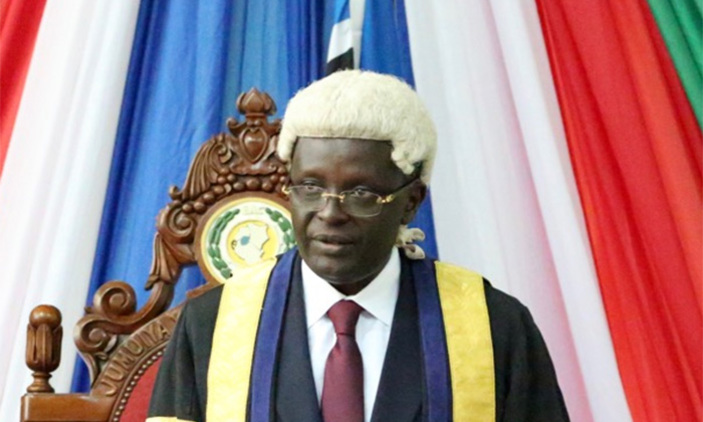The East African Legislative Assembly (EALA) late yesterday extensively debated and passed the East African Community Oaths Bill, 2018, paving way for employees of the Community and persons giving evidence before the East African Court of Justice, the Assembly and related quasi bodies to swear oath of affirmation.
The debate, which resumed following its interruption on March 15, 2018, was preceded by the presentation to the House of the Report of the Committee on Legal Rules and Privileges Committee by Chairperson, Fatuma Ndangiza (Rwanda).
At debate, the Assembly stated the Bill lacked provisions for sanctioning individuals who violate the oath or affirmation, lie under oath or disclose pertinent and confidential information and called for the Committee on Legal, Rules and Privileges in consultation with the Chairperson of the Council of Ministers to include the requisite penal provisions.
The EAC Oaths Bill, 2018 is important to the Community because it legislates for the oaths or affirmation to be taken by people employed by or provides service to the Community, as well as to individuals giving evidence before the East African Court of Justice, the Committee of the East African Legislative Assembly and Quasi-Judicial Bodies of the Community.
According to Article 72 (1) of the Treaty for the Establishment of the East African Community, requires all staff of the Community to pay allegiance to the Community and provides in part that “in the performance of their functions, that staff of the Community shall not seek or receive instruction from any Partner State of from any other authority external to the Community.
The report observes that the laws providing for oaths do not ordinarily provide for sanctions against the breach of the oath or affirmation. Members further observed that penalties for breach of confidentiality or secrecy are usually provided for by either the penal or criminal laws of a jurisdiction or specifically provided for in laws relating to protection of confidentiality or secrecy.
The Oaths Bill, 2018 seeks to provide for the obligation to take oaths or affirmation and to prescribe the actual oaths or affirmations. To include sanctions in the Bill would be going into territory that should be the subject of another law on confidentiality, it adds.
The report notes that until a specific law on confidentiality information or secrecy is developed, there are other laws in the Community and in the Partner States that may be used to punish those that breach confidentiality, including the EAC Staff Rules and Regulations, Rules of Procedure of the East African Court of Justice, the East African Legislative Assembly (Powers and Privileges) Act, 2003 and the Rules of Procedure of the East African Legislative Assembly.








